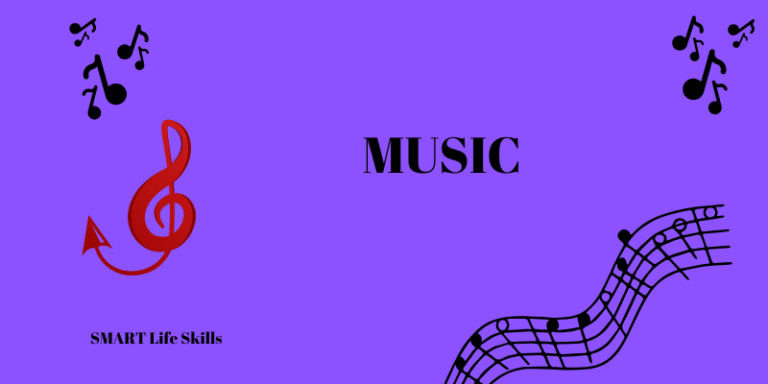The academic study of music encompasses a broad range of disciplines, each offering unique insights into the historical, theoretical, cultural, and practical dimensions of musical expression. As a multifaceted subject, music can be approached through various lenses including musicology, performance, composition, ethnomusicology, music technology, and music education. This article provides an overview of key study modules commonly encountered in higher education music programmes in the United Kingdom and beyond, with an emphasis on their theoretical foundations, methodological frameworks, and practical applications.
1.0 Musicology
Musicology is often considered the scholarly backbone of music studies. It involves the historical and critical study of music, encompassing subfields such as historical musicology and systematic musicology. Historical musicology focuses on the evolution of music over time, often engaging with specific composers, genres, or periods, such as the Baroque or Romantic eras. Systematic musicology, on the other hand, incorporates philosophical, psychological, and scientific approaches to music analysis.
According to Cook and Everist (1999), musicology is instrumental in understanding not only the structural aspects of music but also its social, cultural, and ideological contexts. Musicology modules typically cover areas such as source studies, historiography, analysis, and the critical study of music texts. Engagement with primary sources such as scores, manuscripts, and critical editions is a core component of this discipline.
2.0 Music Theory and Analysis
Music theory and analysis modules are foundational to understanding the language of music. These modules equip students with the tools necessary to analyse musical structure, harmony, rhythm, and form. Topics may include tonal harmony, counterpoint, set theory, and Schenkerian analysis.
As Benward and Saker (2009) highlight, a robust understanding of theory is crucial for both performers and composers, as it enhances interpretative and creative capacities. Music analysis also intersects with cognitive science and aesthetics, exploring how musical meaning is constructed and perceived (Clarke, 2005). Analytical skills developed through these modules are applicable to a wide range of musical genres, from classical to contemporary.
3.0 Performance Studies
Performance is a key component of music education and professional development. Performance studies modules are designed to refine technical ability, stylistic awareness, and stage presence. Students typically receive one-to-one instrumental or vocal tuition, participate in ensemble rehearsals, and perform in public concerts.
Butler (2014) argues that performance is not merely about technical mastery but also involves interpretative decisions shaped by historical knowledge, theoretical understanding, and personal expression. Moreover, many institutions now incorporate performance psychology into their curricula, addressing issues such as stage fright, concentration, and mental preparation (Williamon, 2004).
Assessment in performance studies often includes recitals, ensemble participation, and reflective practice journals, which encourage students to critically evaluate their artistic development.
4.0 Composition and Creative Practice
Composition modules enable students to explore the creative process of writing music across various styles and media. These modules typically cover topics such as orchestration, instrumentation, score preparation, and the use of music technology. Students may compose for acoustic instruments, electronic media, or multimedia projects.
As stated by Collins (2010), contemporary composition increasingly engages with interdisciplinary practices, such as sound art, film scoring, and interactive media. Digital Audio Workstations (DAWs), notation software, and synthesisers are integral tools within this field. Students are encouraged to experiment with form, timbre, and unconventional techniques while also learning to communicate their ideas clearly through notation and performance instructions.
5.0 Ethnomusicology
Ethnomusicology is the study of music within its cultural and social contexts, often focusing on non-Western or marginalised traditions. It combines methods from anthropology and musicology to explore how music functions in different societies. Topics may include fieldwork methodology, transcription techniques, and the relationship between music and identity.
Nettl (2005) emphasises that ethnomusicology challenges the ethnocentric assumptions of Western musicology by valuing diverse musical practices. Modules often involve critical engagement with issues such as colonialism, globalisation, and cultural appropriation. Fieldwork, including interviews and participant observation, is a key aspect of ethnomusicological research, fostering a deeper understanding of music as lived experience.
6.0 Music Technology and Production
Music technology has become an increasingly important aspect of music studies, reflecting the digital transformation of the music industry. Modules in this area focus on sound recording, mixing, mastering, synthesis, and live electronics. They also cover the history and aesthetics of electronic music and sound design.
According to Huber and Runstein (2017), technological fluency is essential for modern musicians, composers, and producers. Music technology modules often involve hands-on learning in studios and labs, encouraging students to produce original work and develop technical expertise. In addition to practical skills, students engage with theoretical discussions on the role of technology in shaping musical creativity and distribution.
7.0 Music Education
Music education modules prepare students for careers in teaching, community music, and outreach. These modules cover pedagogical theories, curriculum design, classroom management, and inclusive practices. Students often undertake placements in schools or community settings to gain practical experience.
Swanwick (1999) argues that music education plays a crucial role in human development, fostering creativity, emotional expression, and social cohesion. The rise of informal learning approaches and technology-based instruction has diversified the ways in which music is taught and learned. Music education modules also address issues of access and equity, encouraging students to consider the broader societal impact of their teaching.
8.0 Popular Music Studies
Popular music studies explore contemporary genres such as rock, pop, hip-hop, and electronic dance music. These modules examine popular music from sociological, historical, and analytical perspectives. Key themes include identity, fandom, gender, and the music industry.
As stated by Shuker (2016), popular music is a powerful cultural force that both reflects and shapes societal values. Modules often involve critical listening, genre analysis, and case studies of artists or scenes. Students may also engage in creative projects, such as producing a track or organising a live event, bridging theory and practice.
The academic study of music is a rich and interdisciplinary field that combines rigorous scholarship with creative practice. Each module contributes to a comprehensive understanding of music’s role in human life—from historical analysis and theoretical inquiry to creative expression and social engagement. By exploring diverse study modules, students gain not only technical proficiency and scholarly insight but also a deeper appreciation of music’s multifaceted nature.
References
Benward, B. and Saker, M., 2009. Music in theory and practice. 8th ed. New York: McGraw-Hill.
Butler, D., 2014. The musician’s guide to perception and cognition. Oxford: Oxford University Press.
Clarke, E., 2005. Ways of listening: An ecological approach to the perception of musical meaning. Oxford: Oxford University Press.
Collins, N., 2010. Introduction to computer music. Chichester: Wiley.
Cook, N. and Everist, M. (eds.), 1999. Rethinking music. Oxford: Oxford University Press.
Huber, D.M. and Runstein, R.E., 2017. Modern recording techniques. 9th ed. London: Routledge.
Nettl, B., 2005. The study of ethnomusicology: Thirty-one issues and concepts. Urbana: University of Illinois Press.
Shuker, R., 2016. Understanding popular music culture. 5th ed. London: Routledge.
Swanwick, K., 1999. Teaching music musically. London: Routledge.
Williamon, A. (ed.), 2004. Musical excellence: Strategies and techniques to enhance performance. Oxford: Oxford University Press.









